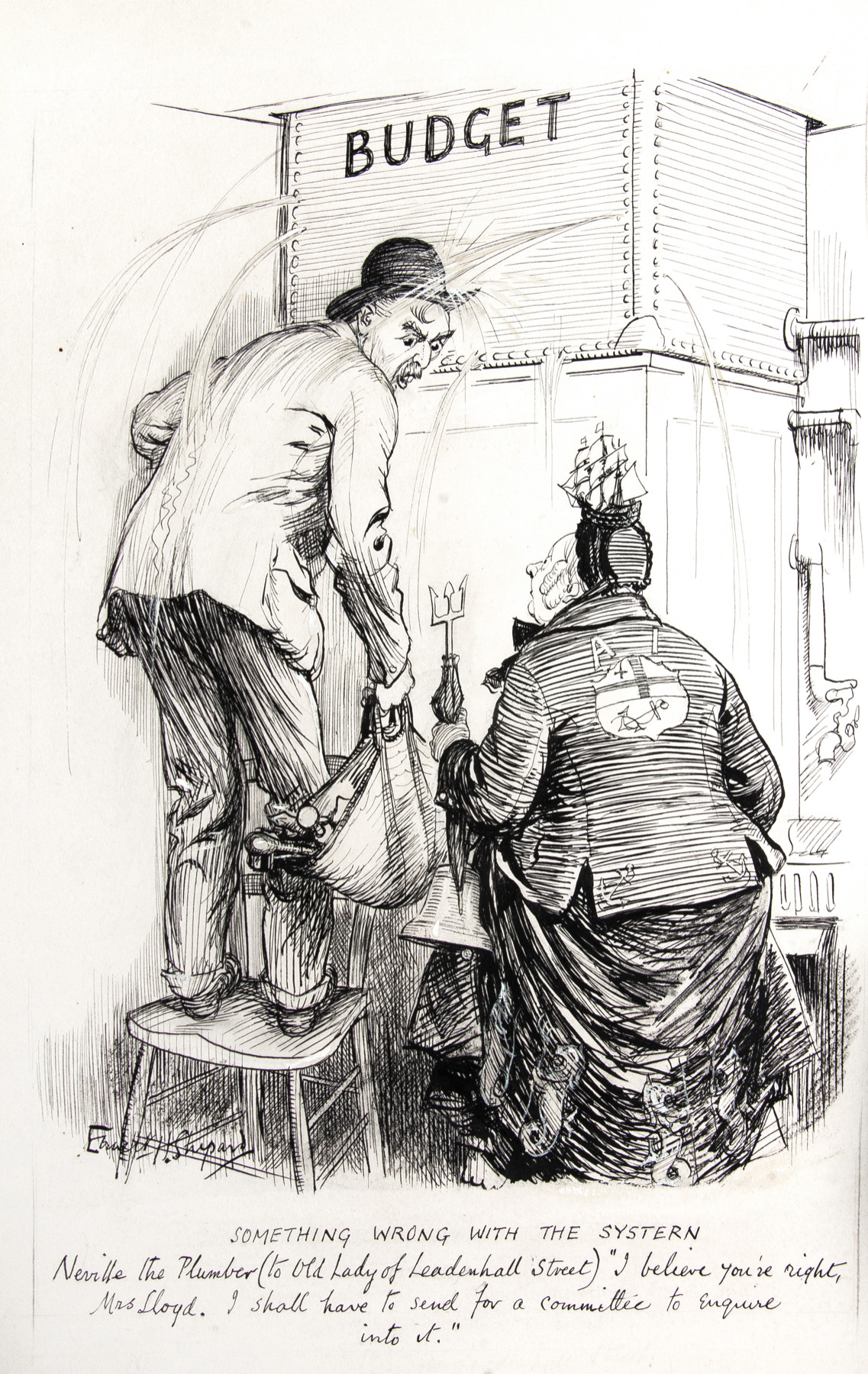
(click image to enlarge)
Following the announcement of the Budget on 21 April 1936, the Chancellor of the Exchequer, Neville Chamberlain, was faced with accusations that elements of the Budget had been leaked in advance. The accusations arose after unusually heavy transactions were noted at Lloyd’s of London, where many clients had been able to insure against the increase in income tax and tea duty. On 27 April, Chamberlain announced in the House of Commons that he had opened an inquiry into the allegations, requesting the Chairman of Lloyd’s, Charles N D Dixey, to ‘sift to the bottom’ of it.
On 3 May, the Lloyd’s committee completed its own inquiry into the Budget leakage, though it was inconclusive, as many members of Lloyd’s refused to disclose the names of their clients who insured against Budget risks, testifying on the stand that revealing names would be a break of professional confidence. However, later that month, a Tribunal of Inquiry found the Secretary of State for the Colonies, Jimmy Thomas, guilty of leaking the Budget proposals to the Conservative MP for Balham and Tooting, Sir Alfred Butt. The Inquiry also found that Thomas had tipped off his stockbroker son, Leslie, as well as a wealthy businessman and associate, Alfred ‘Cosher’ Bates. It was discovered that Thomas’ son Leslie had taken out two large policies on behalf of Bates, insuring him against the imminent rise in income tax. The scandal forced Jimmy Thomas to resign and ended his political career.